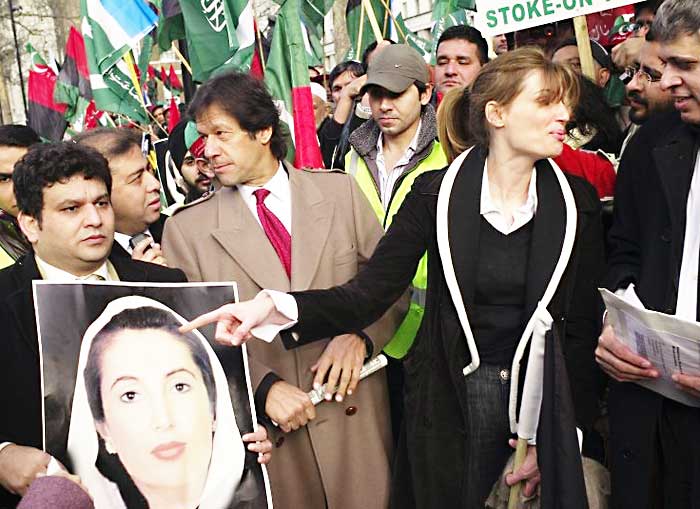Musharraf calls on Brown to take tougher line on extremist groups

Your support helps us to tell the story
From reproductive rights to climate change to Big Tech, The Independent is on the ground when the story is developing. Whether it's investigating the financials of Elon Musk's pro-Trump PAC or producing our latest documentary, 'The A Word', which shines a light on the American women fighting for reproductive rights, we know how important it is to parse out the facts from the messaging.
At such a critical moment in US history, we need reporters on the ground. Your donation allows us to keep sending journalists to speak to both sides of the story.
The Independent is trusted by Americans across the entire political spectrum. And unlike many other quality news outlets, we choose not to lock Americans out of our reporting and analysis with paywalls. We believe quality journalism should be available to everyone, paid for by those who can afford it.
Your support makes all the difference.President Pervez Musharraf has rejected criticism of his record in the US-led "war on terror," and described Pakistan as a "key ally in combating terrorism and extremism" as he emerged from Downing Street talks with Gordon Brown.
The President turned the tables on Britain on the issue of terrorism yesterday as he claimed that the UK has no long-term strategy to defeat it and pointed to the dangers of "home-grown" disillusioned Muslims here as opposed to those in Pakistan. He also called for a tougher line on extremist organisations and singled out the group Hizb ut-Tahrir, saying: "We have banned them in Pakistan, yet we are blamed we are doing nothing. You haven't banned them yet. So why blame us?"
The President dismissed British complaints that the Taliban military leadership continued to operate out of the Pakistani city of Quetta.
"We don't accept that at all," he said during a meeting with journalists yesterday morning at the Dorchester Hotel. He insisted that the ousted Taliban leader from Afghanistan, Mullah Omar, "never came to Pakistan. Why would he come here now?" But he added that refugee camps on the border were "safe havens" for Taliban militants, and that he had asked the United Nations to take them back across the border.
The level of unrest in the areas along the Afghan border was underscored yesterday by a school siege near the town of Bannu, which ended peacefully when six gunmen gave themselves up after a five-hour standoff. All of the 250 children and their teachers were released unhurt.
The President has been dogged by Pakistani opposition protesters while in London. He freely admits this is part of a "charm offensive" devoted to reassuring foreign governments and his critics abroad that elections scheduled for 18 February will be free and fair.
Yesterday, the former cricketer-turned-politician, Imran Khan, was briefly reunited with his ex-wife, Jemima Khan, as they joined demonstrators outside Downing Street demanding Mr Musharraf's resignation. "The British and American governments have swallowed this line by Musharraf that he is this bastion against fundamentalism, extremism and terrorism and if something were to happen to him the country would be swamped by extremists and terrorists," said Mr Khan. "This assumption ... is deeply flawed."
The President rejected suggestions of Pakistani responsibility for the radicalisation of Britain's home-grown extremists with family ties to Pakistan. According to the official report into the London suicide bombings of 7 July 2005, two of the bombers trained in Pakistan.
Yesterday, Israeli officials confirmed that Mr Musharraf held informal talks in Paris last week with the Israel's Defence Minister, Ehud Barak, focusing on Iran's nuclear programme, which has received Pakistani assistance. Israel and Pakistan do not have diplomatic relations.
Join our commenting forum
Join thought-provoking conversations, follow other Independent readers and see their replies
Comments